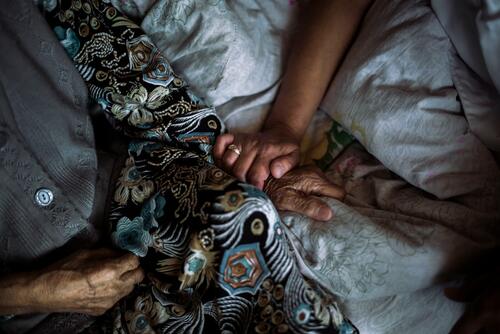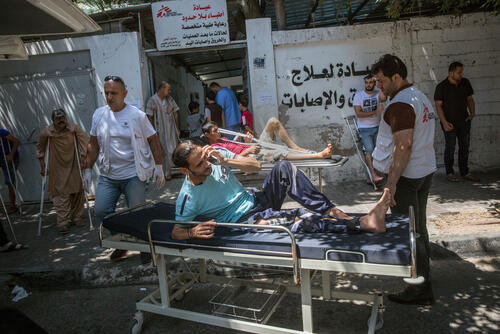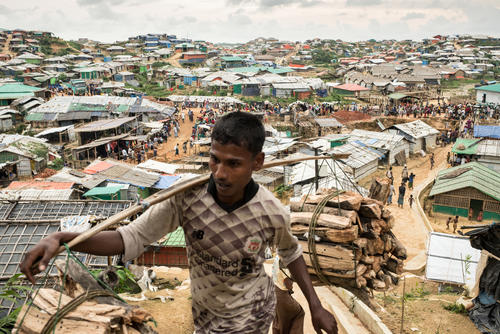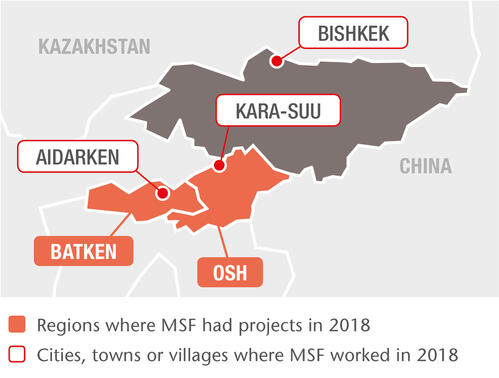
5,640
5,64
1,870
1,87
79
79
Kyrgyzstan is one of the countries with the world’s highest rates of multidrug-resistant TB (MDR-TB). We are helping to bring care closer to patients’ homes, reducing or eliminating the time they have to spend in hospital.
In 2018, we introduced video-observed treatment to support medication adherence for DR-TB patients. We also supported 103 primary healthcare facilities in Kara-Suu to start collecting sputum samples, to enable decentralised TB screening. By the end of the year, over 70 per cent of DR-TB patients in the district were on outpatient treatment; only a small number were still admitted to ensure close follow-up and management of side effects.
In March, the seventh regional MSF TB symposium was hosted in Bishkek, bringing together more than 160 Eurasian experts to discuss new approaches to treatment and how to increase the use of newer drugs and diagnostic tools.
We continued preparations to launch the endTB clinical trial to find radically shorter, more tolerable, injection-free treatments for MDR-TB. Unfortunately, after three years of preparatory work, the difficult decision was taken at the end of the year not to run the trial in Kyrgyzstan due to the delay in obtaining regulatory approval.
In Aidarken, Batken province, where the prevalence of non-communicable diseases (NCDs) is the highest in Kyrgyzstan, we continued to diagnose and treat NCDs and provide healthcare to pregnant women and children.
With the support of technical experts and in collaboration with the Ministry of Emergency Situations, we also conducted a seismic survey examining the risks of an earthquake to the residents of Batken, including the potential for heavy metal pollution due to the presence of mercury and antimony mines.

















